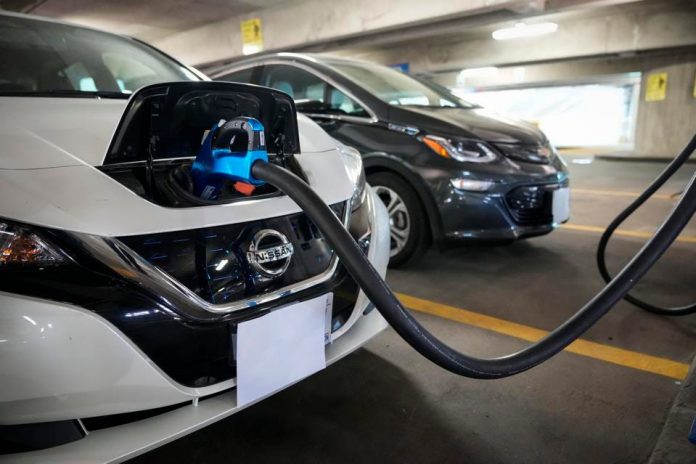Table of Contents
What are Fuel Cell Electric Vehicles?
Fuel Cell Electric Vehicles (FCEVs) are a type of electric vehicle that use a fuel cell to generate electricity, which is then used to power an electric motor. Fuel cells are a type of clean energy technology that produces electricity through a chemical reaction between hydrogen and oxygen. FCEVs have zero tailpipe emissions, meaning they produce no emissions when in operation. They are becoming increasingly popular as an alternative to traditional gasoline–powered vehicles.

What is the difference between Fuel Cell Electric Vehicles and Battery Electric Vehicles?
Fuel cell electric vehicles (FCEVs) are powered by an electric motor that runs on electricity generated by a fuel cell. The fuel cell combines hydrogen and oxygen to generate electricity, with only water vapor as its byproduct. FCEVs typically have a much longer range than battery electric vehicles (BEVs) and can be refueled much more quickly.
Battery electric vehicles (BEVs) are powered by an electric motor that runs on electricity stored in a battery, which can be recharged by plugging in to an external power source. BEVs typically have a shorter range than FCEVs and take longer to charge.
Which fuel cell is used in electric vehicles?
The most common fuel cell used in electric vehicles is a Proton Exchange Membrane (PEM) fuel cell. PEM fuel cells use hydrogen as a fuel and generate electricity and water as a byproduct.
Top 5 advantages of Fuel Cell Electric Vehicles
Electric vehicles are becoming increasingly popular as more and more drivers switch from gasoline–powered cars to electric ones. Fuel Cell Electric Vehicles (FCEVs) are the newest type of electric vehicle on the market, and they offer a number of advantages over traditional gasoline–powered cars. Here are the top five advantages of FCEVs:
1. Lower Fuel Costs: FCEVs are powered by hydrogen fuel cells, which typically cost less than gasoline. This means that you can save money on fuel costs when you drive an FCEV.
2. Improved Range: FCEVs can travel farther on a single charge than traditional electric cars. This means that you can go longer distances without having to worry about running out of charge.
3. Environmentally Friendly: FCEVs produce zero emissions, making them an environmentally–friendly choice. This is particularly beneficial in cities where air pollution is a problem.
4. Refueling Convenience: FCEVs can be refueled at hydrogen fuel stations, which are becoming increasingly available throughout the country. This makes it easy to refuel your FCEV without having to wait for a charge.
5. Quieter Ride: FCEVs are much quieter than gasoline–powered cars
The top 3 disadvantages of Fuel Cell Electric Vehicles
If you’re considering buying a fuel cell electric vehicle (FCEV), you may have already heard about the many advantages they offer over traditional fuel–powered cars. But like any new technology, there are also some disadvantages of driving an FCEV that you should be aware of before making your purchase. Here are the top five disadvantages of FCEVs that you should consider before buying one.
1. High Cost: The biggest disadvantage of FCEVs is their high upfront cost. Currently, most FCEVs cost about twice as much as traditional fuel–powered cars, making them an expensive purchase. Additionally, the cost of fuel cell systems and hydrogen fuel is very high, so running costs are also expensive.
2. Limited Refueling Stations: One of the biggest drawbacks of FCEVs is the lack of available refueling stations. Currently, there are only a few hundred hydrogen fueling stations in the US, compared to the thousands of gas stations. This limits the range of an FCEV, as you may not be able to find a refueling station when you need one.
3. Long Refueling Times: Refueling an FCEV takes much longer than refueling a traditional fuel–powered car
The Future of FCEVs and will hydrogen cars overtake electric cars?

In recent years, electric cars have become increasingly popular as people become more aware of their environmental impact. However, a new technology is emerging that could change the landscape of green transportation: hydrogen cars. Hydrogen cars are powered by a fuel cell, which combines stored hydrogen with oxygen from the air to create electricity. This electricity then powers an electric motor, driving the car.
Unlike electric cars, hydrogen cars do not require a battery, meaning that they can travel further on a single fill. Additionally, the fueling process is much faster, taking just a few minutes compared to the hours needed to charge an electric car. This makes them more convenient for drivers who need to make long journeys.
However, despite the advantages of hydrogen cars, electric cars still have the edge. Electric cars are cheaper than their hydrogen counterparts and they are much easier to find in the market. Additionally, the infrastructure needed to support electric cars is already in place, while hydrogen fueling stations are still relatively rare.
It is too early to tell if hydrogen cars will overtake electric cars, but the technology is certainly promising. As the cost of hydrogen cars comes down and fueling infrastructure becomes more widespread, they could become a viable alternative to electric cars. In the meantime, electric cars remain the most
Read more about the 4 main types of electric vehicles and why we should all make the switch to EVs
































